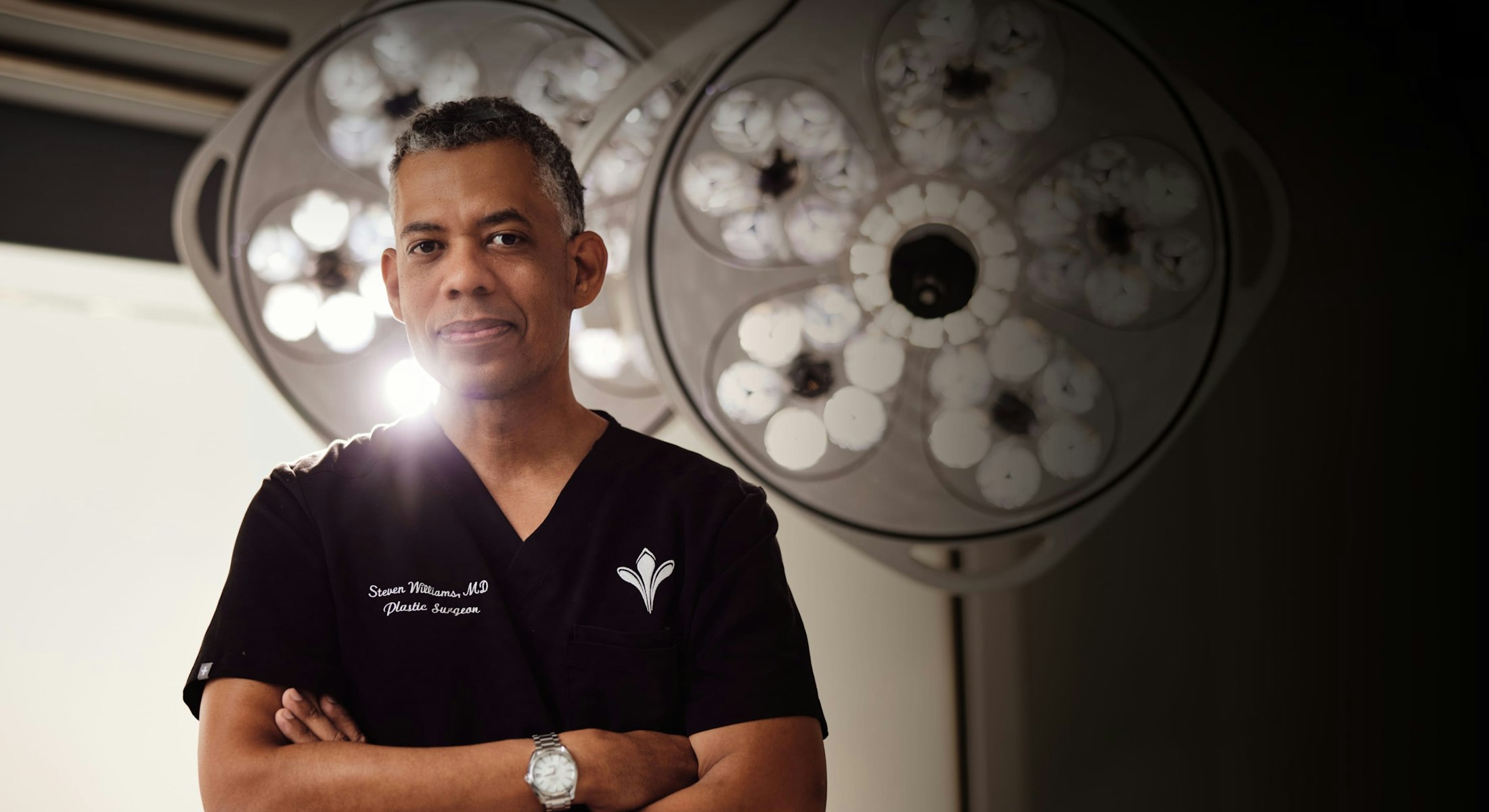Investigating the Emotional and Social Aspects That Drive People to Take Into Consideration Plastic Surgery as a way of Improvement
The choice to seek cosmetic surgery often expands beyond plain aesthetic appeals, intertwining with emotional and social dynamics that merit complete evaluation. Elements such as self-confidence, prevalent societal appeal criteria, and the pervasive influence of social media assemble to shape individual motivations for surgical improvement. As these impacts come to be increasingly famous, understanding the underlying social and emotional contexts is necessary. What stays to be discovered is the extensive impact these aspects have not just on individuality yet likewise on broader social standards and values surrounding charm and acceptance.
The Function of Self-worth
Self-worth considerably influences a person's choice to go after cosmetic surgical procedure. People with low self-esteem often view themselves in an adverse light, bring about feelings of inadequacy regarding their physical appearance. This negative self-perception can drive them to seek surgical treatments as a method of improving their self-image. The desire for renovation in one's look is regularly connected to a belief that such changes will certainly raise their overall self-worth and confidence.

Inevitably, the duty of self-worth in the decision-making procedure relating to plastic surgery highlights the complicated interplay between body photo, individual fulfillment, and psychological wellness. Recognizing this relationship is crucial for healthcare experts to ensure that individuals are making notified decisions rooted in practical assumptions and psychological health.
Social Appeal Standards
Influenced by prevalent media portrayals and cultural narratives, societal charm criteria play a vital duty fit individuals' perceptions of their very own bodies. These requirements are often identified by an idealized form of appeal that highlights characteristics such as slimness, balance, and youthful vigor. As these ideals are bolstered through numerous networks, including television, marketing, and movie, individuals often internalize these messages, leading to frustration with their natural appearance.
The effects of these societal standards expand beyond aesthetic preferences; they can impact self-esteem, mental wellness, and interpersonal partnerships. Individuals who regard themselves as falling short of these standards might experience sensations of inadequacy, triggering a wish for cosmetic surgical treatment as a way of achieving societal authorization. This pursuit is often sustained by the belief that adjusting to these ideals will enhance not just physical look however additionally social standing and individual satisfaction.

Influence of Social Media Site
The impact of societal appeal criteria is further intensified by the surge of social media platforms, where curated pictures and idealized depictions of elegance are common. Users are constantly subjected to filtered and edited photographs, which commonly show unattainable physical attributes. This direct exposure grows a society linked here of comparison, leading people to analyze their own appearance against these often unrealistic criteria.
Social media site influencers and celebs regularly advertise cosmetic procedures, stabilizing the notion that medical improvements are a sensible methods for attaining social suitables (plastic surgery rancho cucamonga). The exposure of these enhancements can develop an assumption that undertaking plastic surgery is a basic practice, thereby affecting people to think about similar treatments as a path to enhanced self-esteem and social approval
Additionally, the interactive nature of social networks allows for immediate responses with likes and remarks, further strengthening the need to comply with prominent appeal requirements. Such interactions can aggravate feelings of insufficiency and drive individuals toward cosmetic surgery as a way of obtaining validation. Ultimately, social networks plays an essential function in shaping understandings of elegance, which significantly affects the decision-making processes bordering plastic surgery.

Social Viewpoints on Look
Across different cultures, understandings of appearance are deeply rooted in historic, social, and economic contexts, shaping individuals' sights on appeal and value. In many cultures, appearance acts as a substantial marker of identity, influencing social status, specialist chances, and personal partnerships. For example, in some cultures, light skin is typically related to wealth and advantage, while others may idealize darker complexion as symbols of toughness and authenticity.
In addition, typical beauty requirements are frequently bolstered through social stories, media representations, and family members influences, causing varying suitables across various regions (plastic surgery rancho cucamonga). In Western societies, the emphasis on youth and physical conditioning often drives individuals towards aesthetic enhancement, while in specific Eastern societies, even more subtle adjustments lined up with traditional aesthetic appeals may be chosen
Globalization and the spreading of electronic media have further made complex these characteristics, creating a hybridization of charm suitables that transcends geographical borders. As individuals progressively browse these social stories, the stress to conform to certain look criteria can result in the wish for plastic surgery, mirroring an intricate interaction of individual desires and social values. Comprehending these cultural point of views is essential in attending to the motivations behind cosmetic surgical procedure considerations.
Psychological Impacts of Cosmetic Surgery
Many individuals looking for plastic surgery report experiencing profound psychological influences that can dramatically change their self-perception and emotional health - plastic surgery rancho cucamonga. The wish for physical enhancement frequently stems from underlying concerns such as reduced read review self-worth, body dysmorphic condition, or societal pressures pertaining to appeal requirements. For some, the prompt post-operative stage can bring about a temporary increase in positive self-image and complete satisfaction with their look, promoting a sense of empowerment
Nonetheless, these positive sensations may not be sustaining. Study indicates that while some individuals experience improved self-worth, others may encounter increased anxiousness or anxiety if their assumptions are not fulfilled. This disparity can emerge from unrealistic ideals continued by media representation and social stories surrounding elegance.
Moreover, the emotional ramifications of cosmetic surgery prolong past the individual. Relationships with friends and family might be strained as social dynamics change, bring about feelings of isolation or alienation. additional resources Eventually, the emotional impacts of cosmetic surgical treatment are multifaceted and complicated, calling for careful consideration by both potential clients and doctor to ensure educated decision-making and sensible assumptions.
Final Thought
Finally, the choice to pursue plastic surgery is dramatically affected by a combination of self-confidence problems, social elegance standards, and social perspectives on appearance. The pervasive reach of social media even more worsens these stress, promoting unrealistic ideals that individuals frequently aim to attain. Understanding these social and emotional variables is important for resolving the inspirations behind plastic surgery, highlighting the requirement for a more nuanced discussion bordering elegance and self-acceptance in modern society.
The choice to pursue cosmetic surgical treatment usually expands past simple aesthetics, intertwining with social and emotional characteristics that merit complete exam. Inevitably, social media plays an essential function in shaping perceptions of elegance, which significantly impacts the decision-making processes bordering cosmetic surgical treatment.
As people significantly browse these cultural stories, the stress to adjust to certain look criteria can lead to the need for cosmetic surgical treatment, mirroring a complicated interplay of cultural worths and individual ambitions.In verdict, the choice to go after cosmetic surgery is dramatically affected by a combination of self-worth problems, societal appeal standards, and social perspectives on look. Recognizing these emotional and social factors is crucial for addressing the inspirations behind cosmetic surgical treatment, highlighting the need for an extra nuanced conversation bordering appeal and self-acceptance in contemporary society.